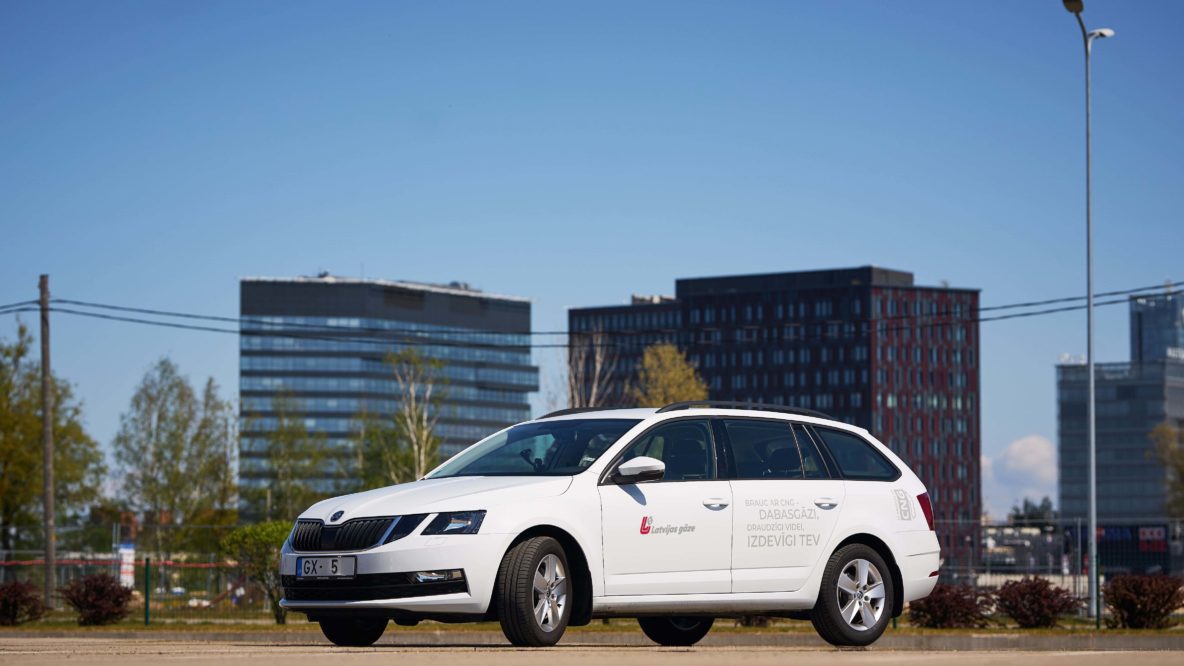CNG or compressed natural gas is one of the best alternatives to traditional fuels. Jānis Bethers, Head of Business Development at Latvijas Gāze, talks about the advantages of using CNG (compressed natural gas).
Rational solution
Currently, the use of CNG in road transport allows you to kill two birds with one stone. The first is cost saving, as the total cost of ownership of a CNG car is currently lowest in the passenger car, truck and bus segments. Secondly, it is a more environmentally friendly mode of transport than petrol, diesel or LPG cars. It is important to highlight four aspects where CNG provides significant environmental benefits: 10-30% reduction of CO2 emissions, 90% reduction of nitrogen compounds, the almost complete elimination of particulate matter (fine dust) and reduced noise pollution as CNG engines are quieter.
In order to compare the financial benefits, it should be noted that CNG is measured in kilograms. Diesel, petrol and LPG however are measured in litres. The CNG consumption of a modern car per 100 km is approximately 10% lower than of petrol, and at the same time, the unit cost is lower, i.e., the price of diesel and petrol is over 1 EUR/l, while the price of CNG is around 0.9 EUR/kg. At present, the cost of 100 km with a CNG car is about 20% lower. Taking the expected excise tax reduction proposals for the use of natural gas in road transport from 1 January 2021 into account, CNG prices could decrease and the financial benefit of choosing a CNG car would therefore increase.
CNG car refuelling
An important aspect for any mode of transport is the ability to refuel conveniently. Currently, there are only three publicly available CNG filling stations in Latvia. However, fuel traders are actively monitoring the readiness of companies and individuals to switch to CNG cars, and there are already several large orders for CNG cars, which have allowed the network owners of the filling stations to decide to install CNG fill post at their service stations. Therefore, in the coming year, the number of stations in Latvia is likely to triple.
When it comes to CNG refuelling, there are two other important aspects to consider. First, both companies and individuals can perform refuelling in their territory as long as the facility has a natural gas connection. Latvijas Gāze offers such filling solutions to its customers. Secondly, some CNG car models have both a CNG and a petrol tank, which allows one to cover approximately 400–500 km with CNG and another 100–150 km with petrol. This solves refuelling problems on longer journeys until the network of filling stations is developed.
Sustainable solution
It is important to note that CNG road transport is not a transitional solution that will be eliminated as environmental demands increase. In the future, the natural gas used in CNG will possibly be partially or fully replaced by biomethane, which is also a sustainable solution, with a view to climate neutrality in 2050. Biomethane, which is produced from manure, food waste or landfill gas, is a modern biofuel recognised in Europe, which, in the future, will also be produced in Latvia and will enable the transport sector to run on green and Latvian-produced fuel. Currently, when purchasing petrol or diesel vehicles, there is a high risk that in the next 5–10 years, this type of car and fuel may be subject to various increases in cost due to the negative impact on the environment, but with CNG and biomethane there is no such risk.



